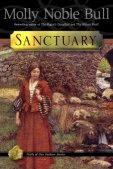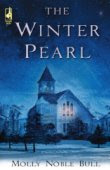Scenes, Sequels, And Scenes Without Dialogue
by Molly Noble Bull
www.mollynoblebull.com
We learned that scenes often contain dialogue. But not all scenes have dialogue. Action scenes are filled with emotions and action verbs like raced, jumped, grabbed, slammed, rolled, socked, darted, nodded, danced, laughed, frowned and many more, but action scenes contain little or no dialogue. Nevertheless, they are still called scenes if they contain the three elements listed here.
Goal
conflict
disaster.
Below is a scene without dialogue that came from my novel, The Winter Pearl. The novel takes place in Colorado in 1988.
The main character, Honor McCall, ran away from her abusive uncle, Lucus, after the death of her aunt. However, she is afraid Lucus will find her and force her to return to the farm.
Underline the goal of the main character in this scene and mark it in your margin. In this case, Honor has several goals. Mark all of them. Then underline the conflict which might include several sentences and mark it. Finally, underline the disaster in the scene and mark it. Study this scene well so you can write a scene without dialogue.
#
Honor still wore her best dress, the tan one she’d worn to the burial. When she’d wrapped her shoulders in her brown woolen shawl and pulled on her brown and yellow print bonnet, she snatched the vegetable basket from the shelf by the back door. Without another glance at Lucas, she went out.
The root cellar was to the right of the garden. If he was watching now, when his mind cleared Lucas would remember that she had turned in the opposite direction. Honor prayed he wouldn’t notice. Walking, then running, toward the wooded area behind the house, she discarded the basket as she fled.
The cool October air smelled of nuts and pinecones. The wind murmured through the bare branches of the trees, tossing the soft curls around her face. Below her bonnet, her long auburn hair blew every which way.
Honor darted a fearful glance behind her. Nothing moved. She slowed her pace, tying the ends of her knit shawl in a knot. The soft garment did little to shield her from the slicing breeze, but it was better than no covering at all.
By the time Honor reached the turn off that led into town, her breath was coming in deep gasps. She knew better than to stay on the road. If Uncle Lucas had a shred of wits about him, he would look for her there first. Besides, she couldn’t take the chance of being spotted. Travelers moved along the road all the time. Her best bet, she decided, was to follow a line of trees.
Darkness had painted the sky a grayish black by the time she arrived in Falling Rock. The bare trees looked like skeletons in the dim light of three street lamps. It was late enough that all proper folk were off the streets. The only men and women in public now would be those inside the Silver Nugget Saloon on the corner—or those standing outside that establishment. Honor skirted around and behind the saloon, making her way toward the church. Her aunt had told her that the building was kept open day and night. She would be safe there.
Honor hoped that by now Lucas would have passed out. Her best chance for escape hinged on his not coming after her until morning—and on her not being seen by anyone else. There were plenty of men around who thought like Lucas, and a young woman of barely nineteen years would be a quick target for them. Her aunt had cautioned her that such men were always out there.
As soon as she entered the church, Honor found a pew toward the middle of the chapel, and stretched out on it. Anyone who came in would not be likely to see her. She couldn’t afford to fall asleep, but it was nice to rest her bones.
A sudden growl of hunger rumbled from her belly, loud enough to be heard if a stranger stood nearby.
#
Sometimes scenes are separated from the paragraphs above and below them by blank spaces. This makes scenes easy to locate when reading a novel. Unfortunately, not all novels are written that way.
In Fiction, what Dwight Swain calls a sequel comes immediately after a scene.
What is the purpose of a sequel? A sequel comes immediately after a scene, giving the main character the opportunity to reflect on what just happened in the story. A sequel also provides the reader with the opportunity to rest before going on to another scene.
The elements of a sequel are ---
Reaction
Dilemma
Decision
Reaction Defined:
The first part of a sequel takes up where the scene left off because sequels begin with the main character’s thoughts and reactions to what took place in the scene.
Dilemma Defined:
The dilemma for the main character in a sequel is deciding what to do next in order reach his or her goal, and there are often several options.
Decision Defined:
After all the options have been carefully considered, the main character makes the decision, selects one of the options and follows it.
Sequels are written in the narrative, and unlike scenes, they tell more than they show.
In fiction, all characters should be different. In this segment, you will learn how to write a proper reaction to a scene depending on the character you are writing about. You will also learn how to write a scene based on a sequel. Remember, a bold and outgoing character will act differently from a shy, frightened one.
Let us say that you just finished reading a scene where Jane breaks up with her boyfriend, Bob, after a big argument. Jane goes up to her room in a huff, leaving Bob behind. What might she be thinking as she climbs the stairs? And what would her reaction to their fight be a little later after she has had time to think about it?
Write a sequel based on the scene I just described and include the viewpoint character’s reaction to what just happened in the scene, her problem or dilemma, and her final decision as to what she will do next.
Then write a new scene that is at least three pages long that includes dialogue that is based on the information found in the sequel you just wrote about Jane.
Below are two possible scenes. Choose one of them, and write a scene that is at least three pages long based on the information below and include dialogue and action in your scene. Then write a sequel after the scene you wrote. Your sequel should be one page in length or a little less. After you have written your sequel, write another scene based on the information in your sequel, and make that scene at least three pages long as well.
Scene/Selection One:
Goal: Peggy was invited by her friend, Grace Brown, to go skiing in Colorado with the Brown family during Christmas vacation, and she very much wanted to go.
Conflict: Her mother thought Peggy should stay home to catch up on a school assignment she was behind in. Peggy cried and argued and threw a fit. She even tried to get her father to go against her mother’s decision. But Mom and then Daddy still said no.
Disaster: Peggy told the Browns that she had permission to go to Colorado when she knew she didn’t. Early on the morning they were scheduled to leave, Peggy was sneaking out of the house when her mother caught her. And what was her punishment? She was grounded for the entire Christmas holidays.
# #
Scene/Selection Two:
Goal: Roger needed money for a down payment if he hoped to go to baseball camp with his friends in the neighborhood next summer.
Conflict: But his mom refused to give him the money. Money was tight since his dad died, and they needed every penny Mom earned to support Roger and his little sister, Gale.
Roger got an after-school job sacking groceries at a grocery store and earned eighty-five dollars. On the day he planned to make his down payment, Gale fell and broke her ankle while roller-skating. And after Roger warned her to be careful, too.
Disaster: Mom needed seventy-five dollars to pay for setting Gale’s ankle, and she wouldn’t get a paycheck for another week.
Tuesday, March 11, 2008
Subscribe to:
Post Comments (Atom)



No comments:
Post a Comment